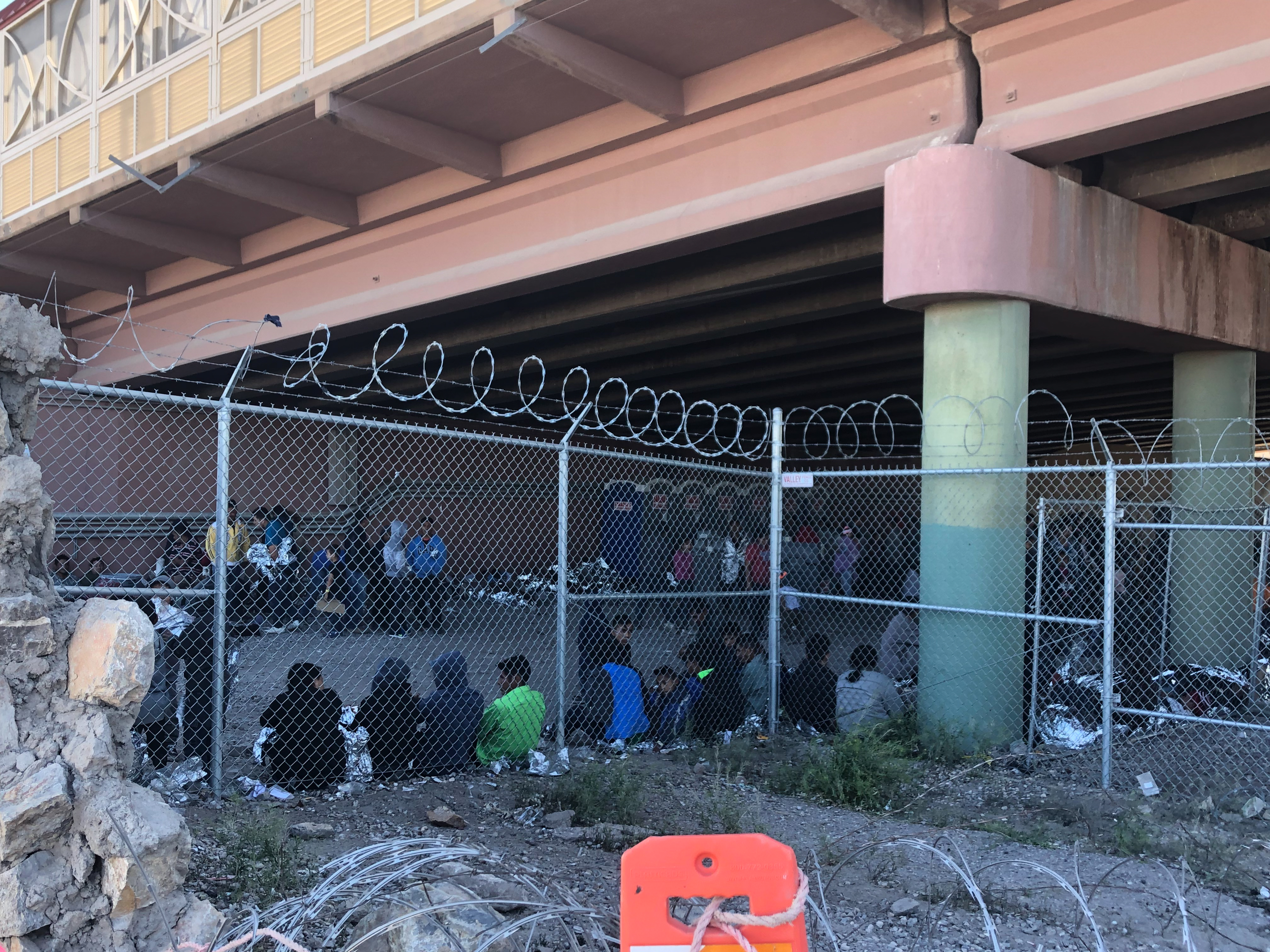Seeking Asylum Is a Right, Not a Privilege
So Why Are We Making Asylum-Seekers Wait and Pay?

The sun had just begun to set, an orange-pink shade coloring the sky. The sound of life in motion fills the air as cars zoom along the I-10 freeway. As I check my blind spot, the Guatemalan woman I am driving to the bus station voices amazement at the safety of El Paso.
There is a curfew in Guatemala after the sun sets, she says. If you go out, you risk getting shot. She speaks of gangs that threatened to burn down her family’s house if her son doesn’t join their ranks. This is why this woman has come to the United States. This is why she and her son traveled almost 2,000 miles from Guatemala to Texas.
But the United States increasingly does everything in its power to deter the vulnerable, to reject immigrants who flee their homeland in search of safety. Given the United States’ vast resources and economic prosperity, our nation must welcome immigrants, be true to our history and national character, and not turn away those who present themselves at the border.
I live in the border city of El Paso and have worked extensively with immigrants at various shelters. Despite having experienced mass trauma both in their country and on the journey north, and then hostility at the border, these people show great bravery and resilience. Contrary to what Donald Trump would have us believe, immigrants are not drug dealers, criminals, or rapists. Instead, they possess real strength and honor, often offering to assist at the El Paso shelters.
There is a right under United States and international law to seek asylum, a specific type of immigration. Asylum seekers look for safety in another country due to fear of persecution in their native lands. If the claim is found to have merit, the asylum seeker is given the chance to make their case in front of an immigration judge.
Under the Trump Administration, however, hurdles are increasingly put up to block asylum seekers. Introduced in January, the “Remain in Mexico” policy mandates that some Central American asylum seekers stay in Mexico until their court date. Separately, on April 30, Trump indicated plans for a new fee for asylum seekers to present their claim. Asylum is a right, not a privilege to be paid for. Forcing asylum-seekers to wait in a foreign country and then charging them for a legal right provided by domestic and United Nations law is unjust and goes against the purpose of seeking refuge.
The recent immigration surge consists of people primarily from Central America, particularly El Salvador, Honduras, and Guatemala, collectively known as the “Northern Triangle.” Investigative journalists at InSight Crime found the level of violence in the Northern Triangle second only to that of a war zone. This is why people flee these countries. Asylum is not, as the president would have us believe, a con job. These asylum-seekers risk everything because they are so clearly in danger and, moreover, are victims of their government’s inability or unwillingness to protect basic human rights.
It is unacceptable that our government increasingly treats these brave, intrepid travelers as criminals. Indeed, findings released by the Cato Institute concluded that a foreigner is less likely to commit a crime than someone born in the United States. Immigrants enrich our society, not detract from it. The true crime is to succumb to Donald Trump’s hateful rhetoric and treat these immigrants as criminals.
Some maintain that immigrants take jobs away from American workers and depress wages. The support for this argument is anemic at best. Another study by the Cato Institute found that immigrants in the workforce increase trade and have such a negligent effect on native Americans’ wages as to be insignificant.
True acceptance, in accordance with our historic values, of those fleeing violence presents the only chance of reversing Trump’s hateful policies. If not now, when? If not by you and me, then who?
Eli Beller is a human rights activist who specializes in immigration. He has traveled, worked, studied, and lived in Argentina, Perú, Colombia, and Mexico and holds a graduate degree in Peace and Justice Studies from the Kroc School of Peace Studies.



